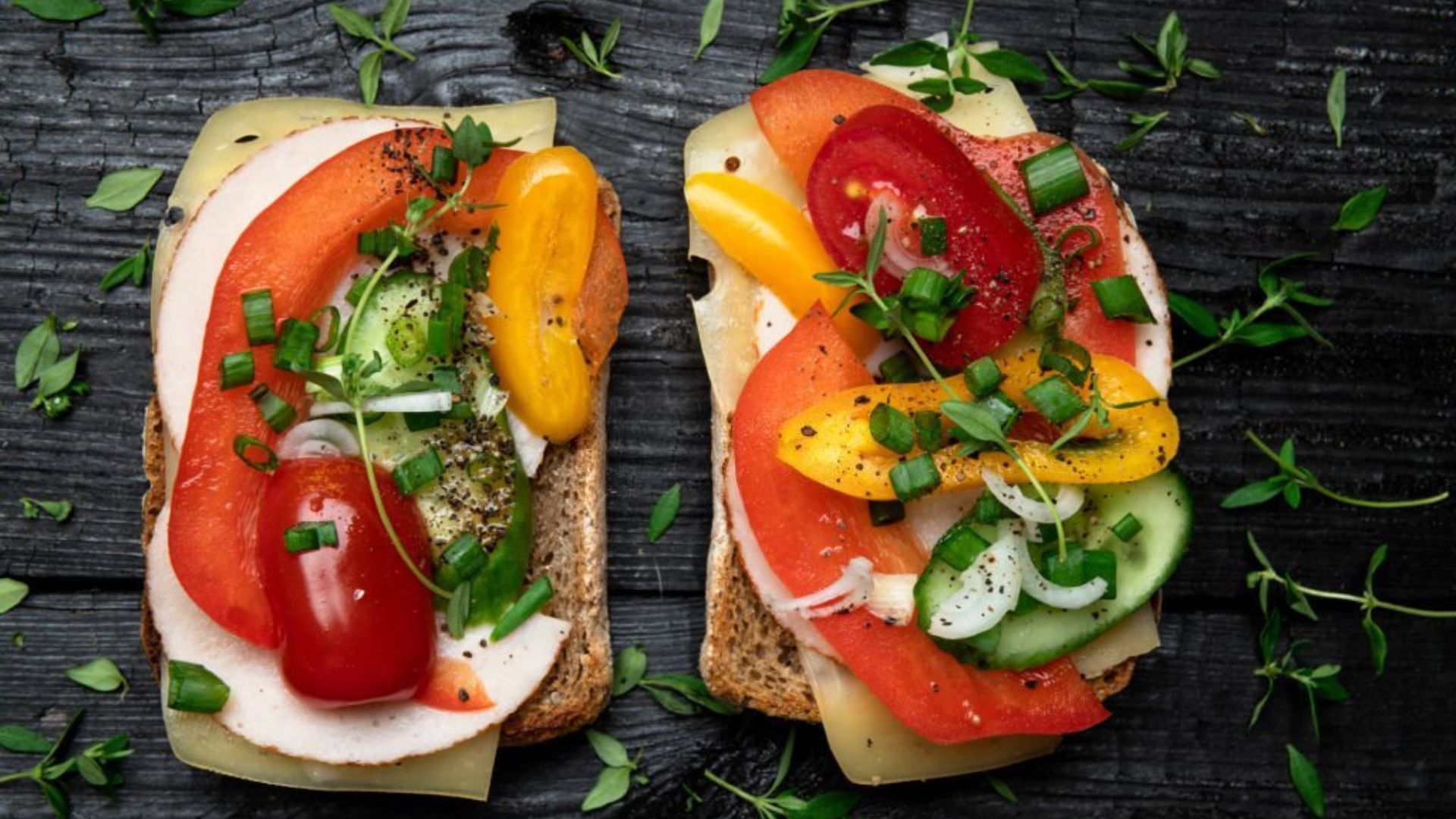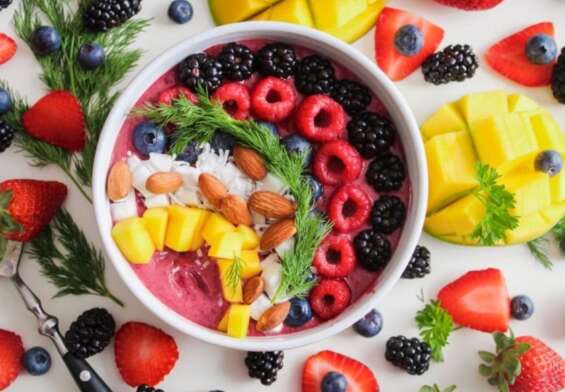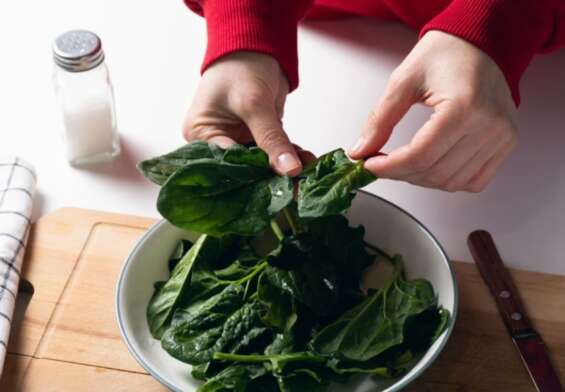
Alkaline Diet: Eat More Alkaline Foods To Boost Your Health!
The Alkaline Diet is an eating plan that emphasizes consuming foods that are alkaline-forming in the body, such as fruits, vegetables, nuts, and seeds, as opposed to acid-forming foods, such as meats, fish, dairy, and processed foods. This diet is thought to help balance the pH levels in the body, which in turn may help promote optimal health and wellness. Proponents of the alkaline diet believe that it can help reduce inflammation, prevent disease, and improve overall health. This diet has gained popularity in recent years, and while there is limited scientific research to support its claims, many people have reported positive results from following an alkaline diet.
The Benefits of an Alkaline Diet for Weight Loss
If you’re looking to shed a few pounds, then an alkaline diet might just be the answer! Unlike other diets, an alkaline diet isn’t about counting calories or depriving yourself of delicious foods. Instead, it’s about eating foods that are rich in alkaline minerals like calcium and magnesium, which can help increase your metabolism and reduce fat.
So, what are the benefits of an alkaline diet for weight loss? Well, for starters, it can help you stay fuller for longer. Eating alkaline-rich foods can help slow down digestion, which keeps your blood sugar levels balanced and prevents cravings. This can help reduce your calorie intake, leaving you less likely to binge on unhealthy snacks.
Another benefit of eating an alkaline diet is that it can help improve your overall health. By eating foods that are alkaline-rich, you’ll be getting more vitamins and minerals that are essential for keeping your body functioning at its best. This can help you feel more energized and reduce fatigue, giving you more motivation to stay active and exercise.
Finally, an alkaline diet can help your body detoxify itself more efficiently. Eating more alkaline-rich foods can help your body break down toxins and flush them out of your system, leaving you feeling healthier and more refreshed.
So, if you’re looking for a diet that is not only effective for weight loss but also helps improve your overall health, look no further than an alkaline diet! With its many benefits, it’s no wonder why so many people are turning to this diet for their weight loss goals.
How to Incorporate an Alkaline Diet into Your Everyday Life
- Start your day with a glass of “alkaline water.” This water has been infused with minerals and electrolytes to help you balance the acidity in your body. Plus, it tastes great and can help you wake up feeling energized!
- Celebrate lunchtime with a nourishing salad made with fresh, alkaline-friendly ingredients. Think leafy greens, crunchy cucumbers, juicy tomatoes, and a splash of olive oil and lemon juice for flavor.
- Get creative with snacks! Instead of reaching for processed goodies, snack on raw veggies and hummus, or enjoy a handful of nuts and a piece of fresh fruit.
- For dinner, whip up a veggie-packed stir-fry or enjoy a hearty bowl of quinoa with roasted veggies. Add some herbs and spices to make it flavorful.
- Don’t forget to satisfy your sweet tooth with an alkaline-friendly dessert. Enjoy some dark chocolate with a glass of almond milk or make a batch of delicious almond butter cookies.
- Stay hydrated throughout the day with plenty of alkaline water. You’ll be amazed by how much better you’ll feel when you keep your body properly hydrated.
- Have fun with it! Experiment with different recipes, flavors, and ingredients to keep your alkaline diet interesting and enjoyable.
Common Myths and Misconceptions about Alkaline Diets
Myth #1: Alkaline Diets Make You Alkaline
Nope! Eating an alkaline diet doesn’t make your body more alkaline. It’s just a way of eating that emphasizes fruits and vegetables and other plant-based foods that have an alkaline effect on your body. That’s all.
Myth #2: You Have to Give Up All Acidic Foods
Not a chance! An alkaline diet doesn’t require you to give up all acidic foods. You just need to limit your consumption of them. So, you can still enjoy your favorite foods in moderation.
Myth #3: You Have to Eat Extremely Alkaline Foods
Not necessarily. While it’s true that alkaline foods have an alkalizing effect on your body, you don’t have to eat a diet that consists entirely of them. You can still enjoy a variety of foods, including some acidic ones, in moderation.
Myth #4: Alkaline Diets are Just a Fad. Not true!
Alkaline diets have been around for centuries and are still popular today. Many people find them beneficial for their health, so it’s not just a passing trend.
Myth #5: Alkaline Diets are Difficult to Follow
Actually, alkaline diets are fairly easy to follow. All you need to do is focus on eating more fruits and vegetables and limit your intake of processed and acidic foods. Plus, there are plenty of delicious recipes out there that make it easy to follow an alkaline diet.
So, there you have it – five common myths and misconceptions about alkaline diets debunked. Now you can make an informed decision about whether an alkaline diet is right for you.
Foods to Avoid on an Alkaline Diet
Ah, the alkaline diet. Eating only foods that are rich in alkaline-forming minerals is a great way to keep your body in balance and your mind clear. But before you jump in headfirst, there are some foods that you should definitely avoid. Here they are, in all their forbidden glory:
- Coffee: No more morning cup of joe! Coffee is highly acidic and should be avoided on an alkaline diet.
- Fried foods: If it’s fried, it’s probably not good for you. Fried foods are a no-no on an alkaline diet.
- Alcohol: Time to lay off the beers and wine. Alcohol is very acidic and can disrupt your body’s pH balance.
- Sugary treats: No more donuts and ice cream! All sugary treats are acidic and should be avoided on an alkaline diet.
- Processed meats: The only kind of meat allowed on an alkaline diet is organic, grass-fed, and free-range. So, say goodbye to bacon and hot dogs.
- White bread and pasta: Put down the white bread and white pasta. They’re made from processed grains and can be very acidic.
- Dairy: Cheese, milk, and yogurt are all acidic and should be avoided on an alkaline diet.
- Canned fruits and vegetables: Canned fruits and vegetables are often full of added sugars and preservatives, which can be very acidic.
Now that you know what to avoid, you can start eating the right way! Bon appetit!
Understanding the Difference between Alkaline and Acidic Foods
Are you searching for a way to spice up your diet? Well, why not try adding some alkaline and acidic foods? Sure, it sounds a bit intimidating, but it’s really not that complicated. Let’s start by understanding the difference between alkaline and acidic foods.
Alkaline foods are those that have a pH level higher than 7.0. These foods are often referred to as “base” or “alkaline-forming” foods. Examples of alkaline foods include most fruits, vegetables, nuts, and legumes.
On the other hand, acidic foods have a pH level lower than 7.0. These are often referred to as “acid-forming” foods. Examples of acidic foods include red meat, poultry, and dairy products.
Now, here’s the funny part: when you mix these two types of foods together in a meal, they can actually neutralize each other! So, if you want to get the most out of your meal, try a combination of alkaline and acidic foods. You might just be surprised by the delicious results!
Identifying High-Alkaline Foods to Include in Your Diet
Are you looking for a way to give your diet a major pick-me-up? If so, why not try adding some high-alkaline foods to your menu? Sure, you could try gulping down a gallon of baking soda, but why not take the more palatable route and add some delicious high-alkaline foods to your diet instead?
Let’s start with the basics: fruits and vegetables! Apples, pineapple, beets, broccoli, and celery are all great choices to give your body an alkaline boost. Don’t forget your greens! Spinach, kale, and Swiss chard are packed with alkaline-promoting minerals and vitamins.
If you’re looking for something a little heartier, try adding some lentils and quinoa to your meals. These nutrient-rich options are also high in alkaline-promoting minerals. And of course, no alkaline-friendly diet would be complete without some tasty nuts and seeds. Almonds, cashews, chia seeds, and flax seeds are all great options.
For a sweet treat, why not try some dried dates, figs, or apricots? These delectable snacks are packed with alkaline-promoting goodness. Or, if you’re in the mood for something a bit more indulgent, why not try a slice of angel food cake? It’s surprisingly high in alkaline-promoting minerals too!
With these high-alkaline foods in your diet, you’ll be sure to feel energized, vibrant, and ready to take on the day. So why not give your body the boost it needs and add some high-alkaline foods to your diet today?
How to Adjust Your Diet to Achieve an Alkaline Balance
Are you ready to finally achieve an alkaline balance and take your health to the next level? If so, you’ve come to the right place! Here are seven simple steps to help you adjust your diet and reap all the amazing benefits of an alkaline lifestyle.
- Cut back on processed foods. Processed foods are generally acidic, so reducing your consumption of them is a great way to start bringing your body’s pH levels into balance. Start by eliminating or reducing your intake of packaged snacks, processed meats, canned soups, and frozen meals.
- Load up on veggies. Vegetables are packed with essential vitamins and minerals, and they are also alkaline-forming. Start adding more veggies to your meals and you’ll be well on your way to an alkaline diet.
- Enjoy some fruit. While some fruits are slightly acidic, there are plenty of alkaline-forming options like apples, oranges, pears, and bananas. Aim to include at least one serving of fruit in your diet each day.
- Go nuts for nuts. Nuts are a great source of healthy fats and they are also alkalizing. Choose raw, unsalted, and unsweetened varieties like almonds, walnuts, and cashews.
- Make it whole-grain. Whole grains like oats, brown rice, and quinoa are great sources of fiber and other nutrients, and they are also alkaline-forming. Try to swap out white bread and pasta for their whole-grain counterparts whenever possible.
- Don’t forget legumes. Legumes like beans, lentils, and peas are all alkaline-forming and packed with plant-based protein. Add them to soups, salads, and stews for a flavorful and nutritious addition to your meals.
- Go for the green. Green tea, matcha, and other green drinks are loaded with antioxidants and other beneficial compounds, and they are also alkaline-forming. Try to have one or two green drinks per day to help keep your pH levels balanced.
Now that you have the basics down, why not give it a try? With these seven simple steps, you’ll be well on your way to achieving an alkaline balance and improving your overall health!
The Potential Health Benefits of an Alkaline Diet
Are you looking for a way to boost your health without sacrificing flavor? An alkaline diet could be the answer! This type of diet is based on the idea that modern diets are too acidic and that an alkaline diet can help balance out the acidity in our bodies.
But what exactly makes an alkaline diet so beneficial? By restricting certain foods and eating more alkaline-friendly foods, the body becomes more alkaline. This means that the body is able to better absorb important minerals and vitamins, while at the same time boosting the immune system.
The most important thing to remember is that an alkaline diet isn’t all lettuce and green smoothies (although they can certainly be part of it!). In fact, there are plenty of delicious and flavorful foods that are highly alkaline. Here are just a few of the alkaline-friendly foods that you should consider adding to your diet:
- Avocados: Avocados are packed with healthy fats, which can help keep your body in an alkaline balance.
- Bananas: Bananas are the perfect snack to help boost your potassium levels and balance out your body’s pH level.
- Cashews: Cashews are a great source of magnesium, which is essential for maintaining healthy alkaline levels in the body.
- Kale: Kale is rich in vitamins and minerals, and it’s also packed with alkaline-friendly nutrients.
- Lemons: Lemons are a great source of Vitamin C, and their acidic properties can actually help alkalize the body.
- Quinoa: Quinoa is high in fiber, protein, and minerals, making it an excellent alkaline-friendly choice.
These are just a few of the alkaline-friendly foods that you can incorporate into your diet. With a bit of creativity, you can easily transform your favorite meals into tasty and alkaline-friendly options without sacrificing flavor. So, why not give the alkaline diet a try and see if it can improve your health?
How to Transition to an Alkaline Diet
Ready to transition to an alkaline diet? Here’s a step-by-step guide to getting you started!
Step 1: Start by stocking your kitchen with alkalizing foods. To make the transition easier, why not have a little fun with it? Go to the grocery store and pick up some of your favorite alkaline foods, like kale, avocados, and blueberries. Get creative and come up with fun nicknames for each food. For example, kale can be “Super Green,” avocados can be “The Great Guac,” and blueberries can be “Berry Blast.”
Step 2: Replace your regular meals with alkaline-friendly meals. Instead of having a burger and fries, opt for a kale salad with grilled chicken. Instead of having a bowl of ice cream for dessert, try a smoothie made with blueberries and bananas. And don’t forget to snack on some nuts and seeds!
Step 3: Start an alkaline-friendly exercise routine. Exercise is an important part of an alkaline diet, so make sure to incorporate some regular physical activity into your routine. You don’t have to go all out – even just a brisk walk or a yoga session can help.
Step 4: Drink plenty of water. Water is essential for flushing out toxins and keeping your body hydrated. Aim to drink at least 8 glasses of water a day.
Step 5: Get some support. Going through the transition to an alkaline diet can be tough, so it’s important to have somebody to support you. Talk to your friends and family and tell them about your goals. They may even join you on your journey!
Making the switch to an alkaline diet doesn’t have to be a daunting task – just take it one step at a time and have a little fun with it. Good luck!
Tips for Shopping on an Alkaline Diet
- Get creative with your snacks: Instead of reaching for chips and pretzels, try snacking on crunchy kale chips, seaweed snacks, and goji berries!
- Don’t forget the greens: Whether you’re shopping for lunch or dinner, stock up on green veggies like broccoli, spinach, and zucchini that are naturally alkaline.
- Skip the processed stuff: When shopping for food, always look for the least processed items. That means avoiding anything that’s been canned, frozen, or packaged.
- Don’t forget the fruits: Apples, pears, and oranges are all great sources of alkaline-friendly fruits. Try adding some citrus fruits to your cart as well for a bit of extra flavor and nutrition.
- Stock up on nuts and seeds: Almonds, walnuts, hemp seeds, and chia seeds are all good sources of healthy fats and protein on an alkaline diet.
- Keep it simple: Remember, the simpler the food, the better it will be for your alkaline diet. So, try to keep your meals as simple as possible, with fewer ingredients and more fresh produce.
- Have fun with it: Eating on an alkaline diet doesn’t have to be boring! Try adding some herbs and spices to your meals for flavor and added nutrition.
- Don’t forget the legumes: Chickpeas, lentils, and other legumes are great sources of plant-based protein on an alkaline diet. They’re also budget-friendly and easy to add to your meals.
The Most Nutrient-Dense Alkaline Foods to Try
If you’re looking to add some serious nutrition to your diet, look no further than alkaline foods! These delicious, nutrient-packed foods are great for your body, and your taste buds won’t even know what hit ’em. Here are the most nutrient-dense alkaline foods you should try for an instant health boost:
Avocados: Who doesn’t love a good avocado? These creamy green fruits are packed with healthy fats and fiber, making them the perfect snack or meal accompaniment. Plus, they’re super versatile—try them in guacamole, on toast, or in a smoothie.
Spinach: Popeye got it right—spinach is one of the most nutrient-dense alkaline foods out there. It’s a great source of vitamins A and K, and you can use it in salads, soups, and even smoothies.
Broccoli: This cruciferous veggie is a powerhouse of nutrition and is high in fiber, vitamin C, and potassium. It also contains a compound called sulforaphane, which helps fight cancer.
Kale: Kale is another nutritional superstar. It’s a good source of fiber, vitamin C, and iron, and it can be eaten raw or cooked. Try it in salads, soups, and smoothies, or throw it on the grill for a delicious side dish.
Lemons: Lemons are high in vitamin C and can help boost your immune system. Add them to your water for a refreshing and nutritious drink, or use them in dressings and marinades.
With these nutrient-dense alkaline foods in your diet, you’ll be well on your way to a healthier lifestyle. Who knew eating healthy could be so delicious?
Conclusion
The Alkaline Diet is an effective way to improve health and reduce the risk of chronic diseases. It is easy to follow and can be tailored to meet individual needs. By following an alkaline diet, one can expect to feel more energized, improve digestion, reduce inflammation, and prevent disease. It is also important to note that the diet should be enjoyed in moderation and should not replace a balanced diet. With a few lifestyle changes, the Alkaline Diet can be an effective way to improve your health and well-being.











